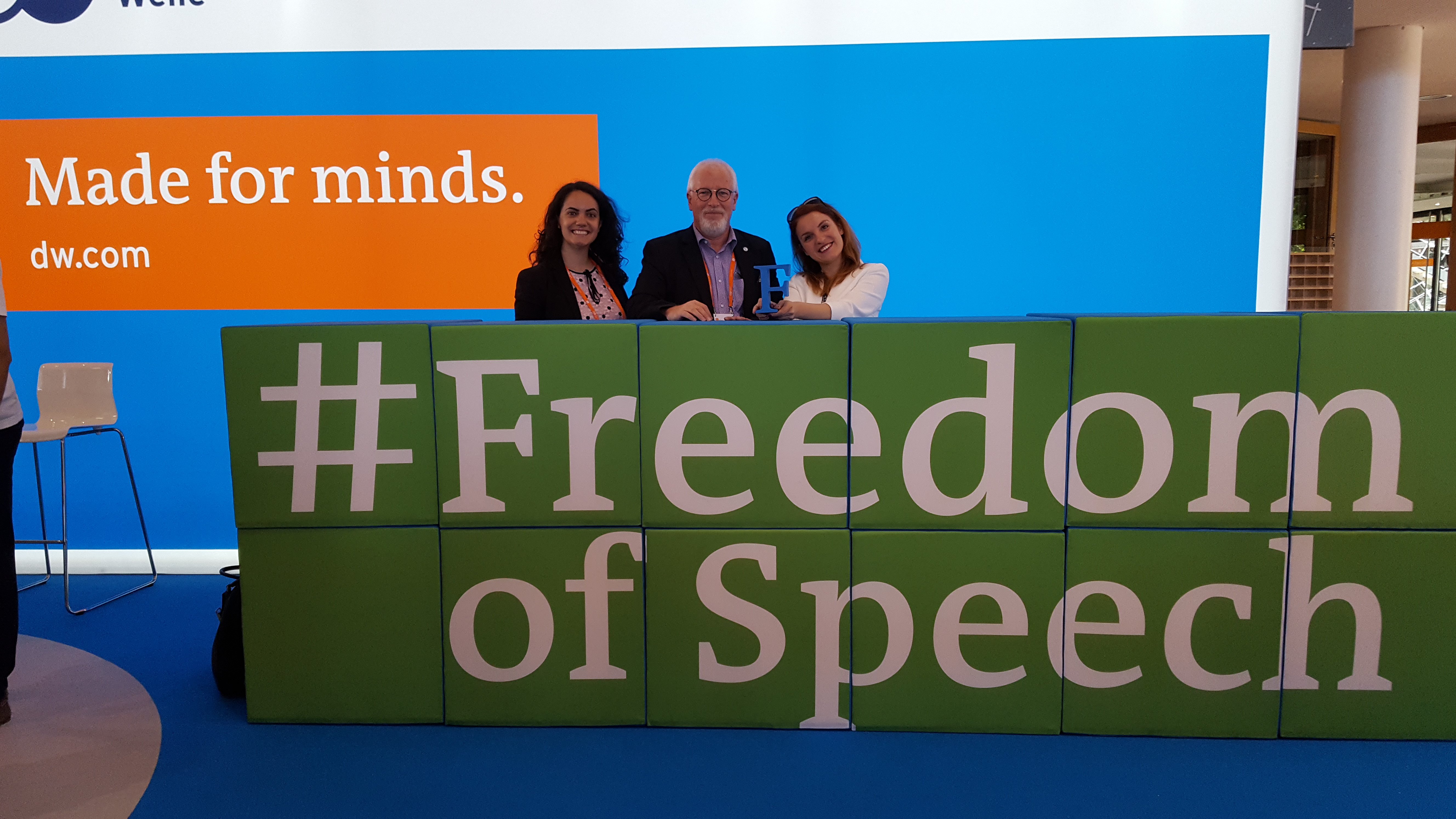“Let’s make true journalism great again”!

FNF ESEE Delegation at GMF
The digital future of journalism, freedom of expression and the crucial role of media in a world of rising nationalism, populism and post-truth based politics were the main topics of the 2017 Deutsche Welle Global Media Forum. The 10th edition of the Forum took place from 19-21 June in the World Congress centre in Bonn under the theme “Identity and Diversity”.
In his opening speech, the DW’s Director General Peter Limbourg outlined the challenges the freedom of speech is facing in a turbulent world facing problems such as the financial crisis, bloody conflicts in the Arab world, the war in Ukraine and the big refugee movement to Europe: “I have a message; we all should have this message for all despots, autocrats and dictators: You will not oppress freedom of speech forever! Freedom of speech is stronger than you are! Any ruler who chokes freedom of the press will fail on the long run. People want more than prosperity and security; they also want freedom and justice!”
In light of his words, the highlight of the opening day was the Freedom of Speech Award, which this year was given to the White House Correspondents’ Association for maintaining high standards in their reporting, despite the daily attacks by the US President Donald Trump on the credibility of journalism. The choice of the recipient, being an organization operating in what is to be considered one of the most democratic countries in the world, was a strong sign that DW wanted to shed light on the deterioration of the freedom of speech and the journalistic ethics and professionalism caused by the “fake news” phenomenon.
Populism and “fake news” were indeed the prevalent discourse among the 2,000 conference delegates, which could choose among about 40 events in different formats and topics – from forum debates to small “hands on” workshops. The Friedrich Naumann Foundation for Freedom contributed with a panel discussion on the “The Role of (Social) Media in Polarized Societies”, moderated by the Foundation’s Regional Director for South Asia, Dr Ronald Meinardus. The panel gathered media experts and journalists from Turkey, Poland, South Africa and Malaysia to share their thoughts and experiences on how in their respective countries governments and populists use the digital and social media to consolidate their power by bending the truth and the public opinion in their favour or in the words of one of the panellists, the social media entrepreneur Gareth Cliff, to "manufacture outrage and division."
In Poland with its right-wing populist government and Turkey, where President Erdogan is openly putting journalists in prison, independent media are struggling to keep afloat. According to the Polish writer and journalist Anna Dudek, public broadcasting in her country has become a tool for the government to “portray political opponents as devils” and carefully choose the broadcasted information to serve their propaganda goals. Murat Sevki Coban, an independent journalist from the Turkish online platform P24 pointed out that the polarization of the society comes from single personalities: "We have one hero or anti-hero, but it has to be about one person”, he said.Coban pointed out that social media is “not a criminal” and not the one to be blamed for the polarization, as the dividing lines have been deeply rooted in Turkish society for years.
“We have to find a way to make truth sexy again” – said Natalia Antelava, Georgian journalist and founder of Coda Story during a panel on the influence of Russia on the media in Eastern Europe. And this was also the main take away from the conference: that in a world dominated by rising populism, relying on post truth facts, fake news , we should all work together to promote the independence of media and freedom of expression.
“Let’s make true journalism great again”! said Natalia Antelava, Georgian journalist and founder of Coda Story during a panel on the influence of Russia on the media in Eastern Europe
Listen to the FNF panel discussion below:
For more photos please visit the Facebook album below:
Learn more below about the Global Media Forum 2017 and the role of social media in the polarization of societies.